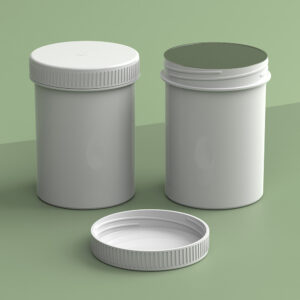Uncategorized
Innovations in Bioplastics: The Technology Behind BioMax™ Plant-Based Containers
As the world increasingly seeks sustainable solutions to combat environmental challenges, innovations in bioplastics have emerged as a promising alternative to traditional fossil fuel-based plastics. BioMax™ plant-based containers are at the forefront of this revolution, offering an eco-friendly option that doesn’t compromise on quality or functionality. In this blog, we’ll explore the technology behind BioMax™ plant-based containers and how these innovations contribute to a more sustainable future.
The Science of Plant-Based Plastics
Traditional plastics are derived from petrochemicals, which are finite and contribute significantly to environmental pollution. In contrast, BioMax™ containers are made from renewable plant materials such as corn starch, sugarcane, and other bio-based resources. The process involves converting these natural resources into polymers through fermentation and polymerization. This results in a material that mimics the properties of conventional plastics but with a significantly reduced environmental impact.
Production Process of BioMax™ Containers
The production of BioMax™ plant-based plastics begins with the cultivation of the raw materials, such as corn or sugarcane. These plants undergo a fermentation process where the sugars are converted into lactic acid by microorganisms. The lactic acid is then polymerized to create polylactic acid (PLA), a type of bioplastic. PLA can be further processed and molded into various forms, including the screw top containers offered by BioMax™.
This process is more energy-efficient and generates fewer greenhouse gases compared to the production of traditional plastics. Additionally, using renewable resources reduces dependence on fossil fuels and contributes to a more sustainable supply chain.
Performance and Durability
One of the key advantages of BioMax™ plant-based containers is that they maintain the performance and durability of traditional plastics. Despite being made from plant materials, these containers are strong, lightweight, and resistant to moisture and chemicals. This makes them suitable for a wide range of applications, from food and beverage storage to cosmetics and pharmaceuticals.
The technology behind BioMax™ ensures that the containers can withstand everyday use and provide a reliable, long-lasting packaging solution. This durability is achieved through advanced polymerization techniques that enhance the strength and stability of the bioplastic.
Environmental Benefits
BioMax™ plant-based containers offer several environmental benefits over traditional plastics. These include:
- Reduced Carbon Footprint: The production of BioMax™ containers generates fewer greenhouse gas emissions compared to fossil fuel-based plastics. This helps mitigate climate change and promotes a healthier planet.
- Renewable Resources: The use of plant-based materials means that BioMax™ containers are made from resources that can be replenished, reducing the strain on finite natural resources.
- Recyclability: Many BioMax™ containers are designed to be recyclable, supporting a circular economy and reducing plastic waste. Proper recycling infrastructure and consumer participation are crucial to maximizing these benefits.
Future Innovations
The field of bioplastics is continually evolving, with ongoing research and development aimed at improving the properties and applications of plant-based plastics. Innovations in areas such as biodegradability, compostability, and enhanced performance are driving the industry forward. BioMax™ is committed to staying at the forefront of these advancements, continually refining their products to meet the growing demand for sustainable packaging solutions.
Conclusion
BioMax™ plant-based containers represent a significant innovation in the world of bioplastics. By leveraging advanced technology and renewable resources, these containers offer a sustainable alternative to traditional plastics without compromising on performance or durability. The environmental benefits of BioMax™ containers, coupled with their versatile applications, make them an excellent choice for businesses and consumers looking to reduce their environmental footprint.
For more information on BioMax™ plant-based plastic screw-top containers, visit our BioMax™ page.

